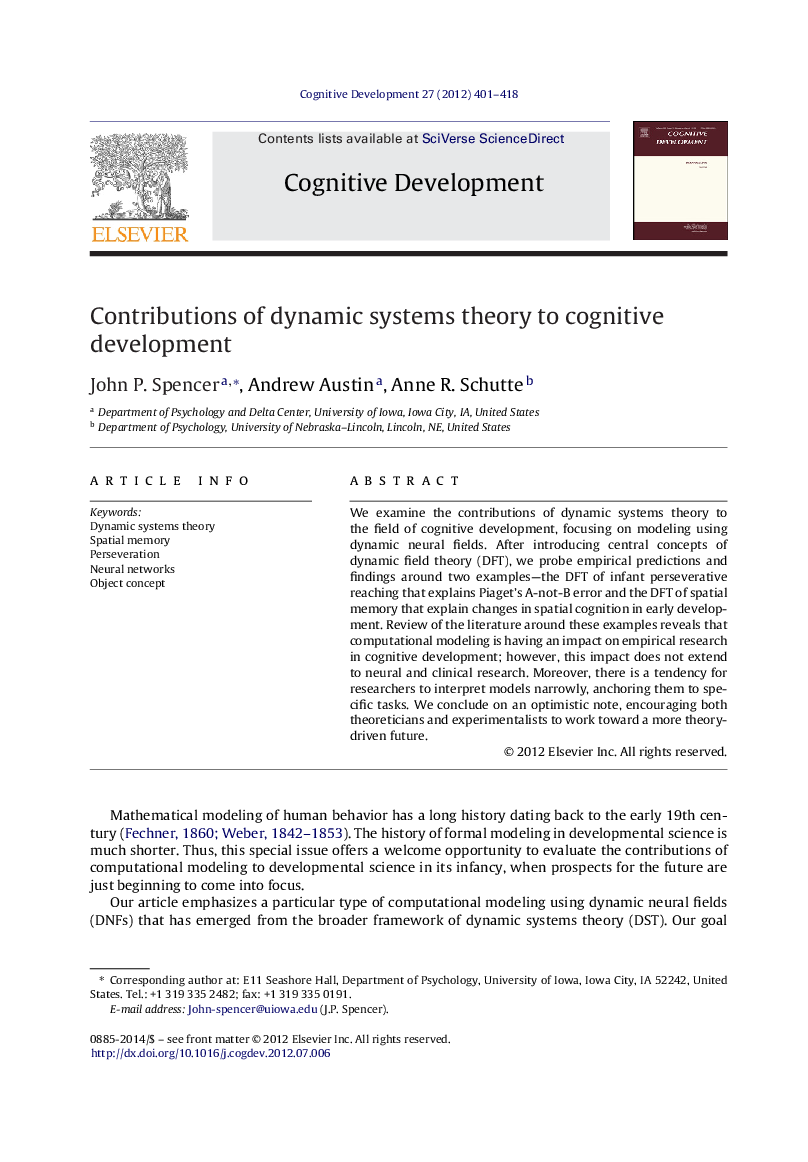| کد مقاله | کد نشریه | سال انتشار | مقاله انگلیسی | نسخه تمام متن |
|---|---|---|---|---|
| 916515 | 918858 | 2012 | 18 صفحه PDF | دانلود رایگان |

We examine the contributions of dynamic systems theory to the field of cognitive development, focusing on modeling using dynamic neural fields. After introducing central concepts of dynamic field theory (DFT), we probe empirical predictions and findings around two examples—the DFT of infant perseverative reaching that explains Piaget's A-not-B error and the DFT of spatial memory that explain changes in spatial cognition in early development. Review of the literature around these examples reveals that computational modeling is having an impact on empirical research in cognitive development; however, this impact does not extend to neural and clinical research. Moreover, there is a tendency for researchers to interpret models narrowly, anchoring them to specific tasks. We conclude on an optimistic note, encouraging both theoreticians and experimentalists to work toward a more theory-driven future.
► We provide an overview of the contributions of dynamic system theory to the field of cognitive development.
► We discuss a dynamic field theory of infant perseverative reaching that explains and predicts novel findings from the A-not-B literature.
► We discuss a dynamic field theory of spatial cognitive development that explains and predicts novel findings from spatial memory research.
► We conclude that computational models are having an impact in cognitive development but this impact does not extend to neural and clinical research which is a missed opportunity.
Journal: Cognitive Development - Volume 27, Issue 4, October–December 2012, Pages 401–418